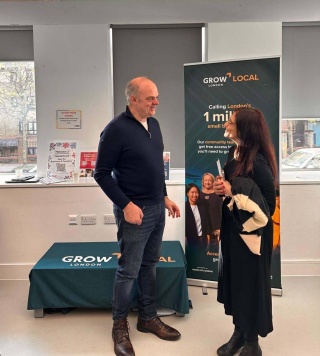SIX MONTH SEO ROADMAP: HOW TO BUILD SUSTAINABLE ORGANIC GROWTH

If you're looking to grow your business online, SEO is one of the most reliable and cost-effective ways to attract high-quality traffic and generate long-term results. But SEO isn’t something you “set and forget.” It takes a strategic, phased approach—especially in a competitive space.
The Foundation: How to Build a Strategic SEO Roadmap
Creating an effective SEO roadmap is more than just listing tasks; it’s a strategic process that aligns your SEO efforts with your broader business goals. Before you can start tackling individual tasks, you need a clear plan. This involves defining your vision, setting clear objectives and then prioritising the work that will deliver the most value.
The Roadmap Creation Process
1. Define Your Strategy and Vision: Before anything else, establish what you want to achieve. What is the ultimate goal of your SEO efforts? Is it to increase brand awareness, drive e-commerce sales or generate leads for your B2B service? Your vision should be a clear, long-term statement that guides all subsequent decisions.
2. Gather & Analyse Data: A good roadmap is built on data, not assumptions. This is where you conduct a thorough audit of your current online presence, analyse your competition and identify your target audience's needs. This step helps you understand where you stand and what opportunities exist.
3. Prioritise Initiatives Using a Framework: Not all tasks are created equal. To ensure you're working on what matters most, use a prioritisation framework. This helps you objectively rank tasks and initiatives. Some popular frameworks include:
- The RICE Framework: This scoring model helps prioritise tasks by evaluating them based on four factors: Reach (how many people it will affect), Impact (how much it will affect them), Confidence (how certain you are of the outcome) and Effort (the resources required).
- The Impact vs. Effort Matrix: This straightforward but effective framework uses a two-by-two grid to help you categorize tasks. By plotting tasks based on their impact and effort, you can easily identify:
- Quick Wins: These are the high-value tasks that require little effort. Do them first to get a quick return on your investment.
- Major Projects: These tasks are high value but also require a lot of time and resources. Plan for these carefully.
- Fill-Ins: These are low-value and low-effort tasks. Save them for when you have extra time or delegate them.
- Time Sinks: These are low-value tasks that require significant effort. Avoid them unless absolutely necessary.
Focusing on the high-impact tasks—your Quick Wins and Major Projects—ensures you're making the most of your time and resources.
4. Organise and Timeline Your Plan: Once prioritised, group similar tasks into phases or themes. This is where you organise your high-level plan into a structured timeline, like our six-month roadmap. This makes it easier to manage dependencies, allocate resources and communicate progress to stakeholders.
5. Communicate & Iterate: Your roadmap is a living document. It should be shared with your team and key stakeholders to ensure everyone is aligned on the why, what and when. As you execute, continuously monitor your metrics, gather feedback and be ready to adapt the plan based on new data or changing market conditions.
At Go Mungo SEO, we use a structured 6-month SEO roadmap that helps our clients build strong foundations, climb the rankings, and drive real business results. Whether you're a startup, SME, or established brand, this plan can be tailored to your needs.
Here’s exactly how we approach SEO over six months:
Month 1: Audit, Strategy & Technical SEO Fixes
Before we can move forward, we need to know where we stand. The first month is all about setting a solid foundation.
Key Tasks:
- Full website audit using tools like Semrush and Google Search Console
- Fix technical issues: broken links, crawl errors, duplicate content, Core Web Vitals
- Keyword research targeting buyer intent and long-tail opportunities
- Competitor gap analysis (who’s outranking you—and why)
- Define content themes and topic clusters
Pro tip: Don’t just focus on volume—go after keywords that match your customer’s intent and business value.
Month 2: On-Page Optimisation & Conversion Improvements
With the strategy in place, we optimise your core pages to ensure they’re performing at their best.
Key Tasks:
- Update all key on-page elements: title tags, H1s, meta descriptions, image alt text
- Implement schema markup for services, articles, and FAQs
- Improve internal linking structure between service pages, blogs, and case studies
- Make conversion tweaks: better CTAs, clearer messaging, trust signals like reviews and case studies
Why this matters: Google rewards well-structured content that serves both users and search engines. So will your customers.
For a deeper dive into actionable tactics, check out our guide on Eight On-Site Optimisation SEO Strategies You Can’t Miss.
Month 3: Content Creation (Top & Mid Funnel)
Next, we create high-quality content designed to educate, build authority, and attract organic traffic.
Key Tasks:
- Publish 4–6 blog posts targeting informational and comparison keywords
- Topics might include:
- “The Future Of SEO In The Age Of AI Platforms"
- “How to Choose an SEO Agency for Your Startup"
- “Common Local SEO Mistakes That Cost Small Businesses”
- Create and promote 1–2 detailed case studies showing real results
Tip: Content without a distribution plan is a wasted asset. Use it across social media, email, and sales outreach.
Month 4: Link Building & Authority Growth
You can’t rank without authority. Month four focuses on increasing your site’s trust and credibility.
Key Tasks:
- Guest posting on relevant marketing and business sites
- Promote case studies and helpful content to earn backlinks
- Outreach for broken link building and unlinked brand mentions
- Enhance E-E-A-T signals:
- Author bios
- Media mentions
- Updated About and Testimonials pages
Remember: Links are still a top ranking factor—especially when they're relevant and editorially earned.
Month 5: Local SEO & Brand Visibility
This month, we focus on helping people find you in your city, region, or target markets.
Key Tasks:
- Fully optimise your Google Business Profile
- Create local landing pages if you serve different regions (e.g., SEO Agency in London, SEO for UK Startups)
- Build and update local citations across UK business directories
- Gather more Google reviews and embed them on your site
Local visibility = more qualified leads. Especially for agencies and service providers.
Month 6: Analyse, Refine & Scale
By month six, you’ll have momentum. Now it’s time to analyse what’s working—and double down.
Key Tasks:
- Review rankings, traffic, and leads generated
- Identify high-performing content and pages to scale
- Refresh or consolidate underperforming content
- Plan the next content calendar based on new opportunities
- Split-test meta titles for better CTR
Goal: Move from execution mode to continuous improvement.
Metrics We Monitor Throughout
- Organic traffic (via GA4)
- Search Console performance (clicks, impressions, top queries)
- Keyword rankings for core services
- Backlink growth
- Conversion actions (form fills, calls, downloads)
Final Thoughts
SEO is not a one-off project. It’s a long-term investment in your online visibility. With the right plan and consistent execution, you’ll see compounding results.
If you’re unsure where to start—or if your current SEO efforts feel disjointed—our team at Go Mungo SEO is here to help. We specialise in working with startups, SMEs, and ambitious brands that want transparent, measurable growth.
For more information read our article 6-Step SEO Success Framework that outlines a structured, step-by-step approach designed to help businesses achieve long-term, sustainable SEO results.
If you’d like to understand how a tailored SEO strategy could work for your business, contact us for a chat — or explore our case studies to see what’s possible.

